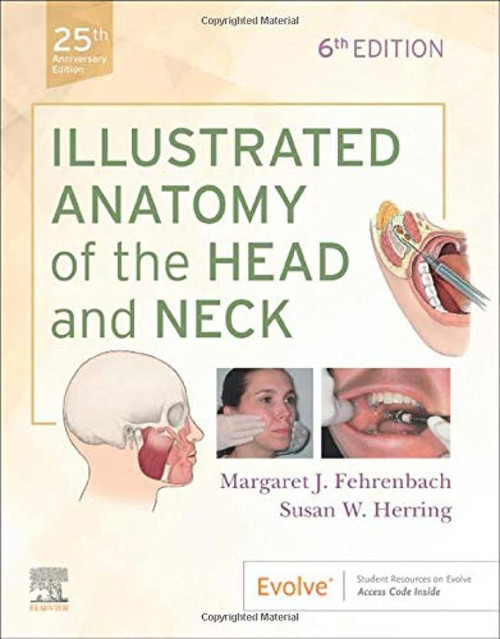Known for its top-notch artwork and readable writing style, Illustrated Anatomy of the Head and Neck, 5th Edition, provides student dental professionals with complete coverage of head and neck anatomy, plus detailed discussions of the temporomandibular joint and its role in dental health, the anatomy of local anesthesia, and the spread of dental infection. Chapters are organized by anatomical systems of study and include expanded review questions that help prepare you for classroom and board examinations. Combine this new edition with its companion title, Illustrated Dental Embryology, Histology, and Anatomy, and you will have a solid foundation of basic scientific knowledge that ties to everyday clinical dental practice.
- Identification exercises at the end of each chapter ask you to label the different structures to test your knowledge of anatomy.
- Multiple-choice review questions end each chapter and prepare you for board examinations.
- Comprehensive coverage provides a solid foundation in head and neck anatomy, with an in-depth discussion of the TMJ and its role in dental health, plus additional material on the anatomy of local anesthesia and the spread of dental infection.
- Conversational writing style ensures that you easily comprehend complex anatomy and clinical application.
- Chapters are organized by anatomical systems of study so that discussions progress logically from overviews of the area to the specifics related to the head and neck, providing a solid foundation for learning.
- Detailed anatomical illustrations and clear, colorful photographs show models and patients within a clinical setting to support text descriptions and help ensure comprehension.
- Award-winning and trusted author Margaret Fehrenbach curates cutting-edge content and the latest evidence-based information.
- Key terms and their phonetic pronunciations are highlighted within the chapter and defined in a back-of-book glossary.
- A how-to appendix with accompanying photos shows you the steps to perform extraoral and intraoral patient examinations.
- Learning objectives open each chapter with goals to be accomplished, and serve as checkpoints for comprehension, skills mastery, and exam preparedness.











